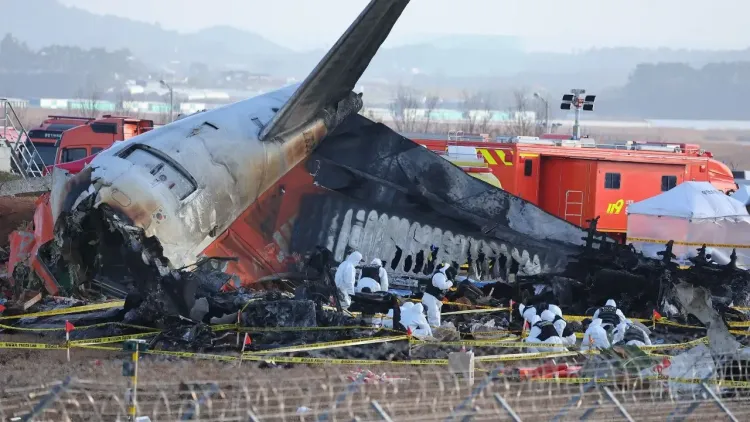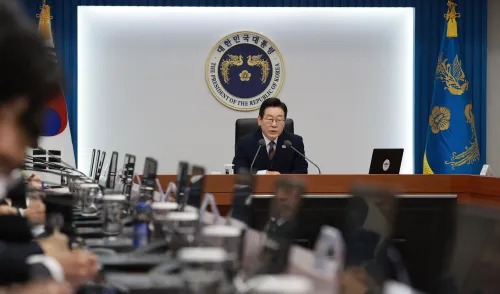Flight Data Recorder from Jeju Air Crash to be Analyzed in the US

Seoul, Jan 1 (NationPress) The government of South Korea has declared that it will transfer the flight data recorder from the Jeju Air aircraft that met with an accident to the United States for further examination.
The specific schedule for this transfer will be established in coordination with the National Transportation Safety Board (NTSB), as noted in a briefing by the Ministry of Land, Infrastructure and Transport.
The flight recorder, which was retrieved from the wreckage of the Jeju Air B737-800 at Muan International Airport, showed signs of external damage, including a missing connector that links its data storage unit to the power source.
“We have concluded that it is not feasible to extract data from the damaged flight data recorder here,” stated Joo Jong-wan, director of the aviation policy division at the ministry. “Thus, we have reached an agreement with the NTSB to send it to the US for analysis.”
Experts from South Korea will be involved in the analysis process in the United States, he mentioned.
On a positive note, authorities have successfully extracted data from the cockpit voice recorder, which was found in relatively good condition, and they have begun the process of converting this data into voice files, as reported by the ministry.
Additionally, two more investigators from Boeing Co. have joined the investigation team looking into the Jeju Air incident at Muan International Airport, according to government sources.
With this addition, the total number of US team members has risen to 10, consisting of six from Boeing and three from the NTSB.
Sources indicate that the US team's expanded presence aims to facilitate a comprehensive investigation of the incident.
The US team arrived in South Korea on Monday and went directly to Muan, where they began their joint investigation with the Korean team, led by the Ministry of Land, Infrastructure and Transport, the following day.
During their initial joint investigation on-site, investigators concentrated on a navigation system known as a localizer, which assists with aircraft landings.
The localizer, situated on a concrete structure at Muan International Airport, has been implicated in worsening the severity of casualties in the Jeju Air crash.
On the second day of their investigation on Wednesday, US officials were observed inspecting debris from the aircraft scattered across the runway, including engine components, as reported by Yonhap news agency.
Some investigators were seen collecting debris, examining the undersides, and taking photographs, while others appeared to be making calls with serious expressions or pointing out damaged areas, calling colleagues over for further inspection.
The Jeju Air B737-800 aircraft belly-landed at the airport and exploded on Sunday after crashing into the structure, resulting in the tragic loss of 179 lives out of 181 passengers aboard.









